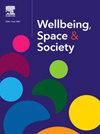加拿大多伦多无家可归青年的性同意教育:基于艺术和定性研究的结果
IF 2.2
Q2 GEOGRAPHY
引用次数: 0
摘要
无家可归的青年面临更高的性暴力风险,减少了他们获得性福利、司法和保健的机会。性同意——表达的同意、参与性行为的能力和自由——是实现性幸福的基础,但在这一人群中尚未得到充分的探索。以艺术为基础的方法有望促进健康和福祉,但它们在无家可归青年的性同意教育方面的作用存在差距。本研究探讨了无家可归的青少年在性同意和性暴力方面的经历,以及在性同意教育中以艺术为基础的方法的潜力。我们对经历过无家可归的年轻人进行了在线焦点小组和深度访谈(2021-2022),并对多伦多的青年工作者进行了关键信息提供者(KI)访谈。我们探讨了:a)性同意的理解,b)性同意教育的需求和挑战,以及c)两种基于艺术的性同意教育方法(诗歌和漫画)。数据被逐字转录并按主题进行分析,由社会语境框架提供信息,该框架涉及关系、材料和象征语境。参与者(N = 24)包括17名18-29岁有无家可归经历的青年(4名fg;5面试;平均年龄22.57岁,SD 3.22), KI 7 (1 FG;5面试;平均年龄27.25岁,SD 5.54)。造成性暴力受害的因素包括:关系(面对面和数字化的性空间、缺乏社会支持)、物质(住房不安全、贫困)和象征(性别、性取向、药物使用耻辱)背景。这些造成的环境使无家可归的青年在性方面的自主权、安全感和安全性方面受到削弱。诗歌和漫画是有效和可接受的,如果适合无家可归的年轻人的现实,并侧重于赋权,而不仅仅是技术技能。本文章由计算机程序翻译,如有差异,请以英文原文为准。
Sexual consent education among youth experiencing homeless in Toronto, Canada: findings from an arts-based and qualitative study
Homeless youth face elevated risks of sexual violence, diminishing their access to sexual-well-being, justice and health. Sexual consent—expressed agreement, capacity and freedom to participate in sexual practices—is fundamental to realising sexual well-being, yet is underexplored with this population. Arts-based approaches are promising for advancing health and well-being, yet gaps exist regarding their role in sexual consent education with homeless youth. This study explores homeless youth experiences of sexual consent and violence, and the potential of arts-based approaches in sexual consent education. We conducted online focus groups and in-depth interviews (2021–2022) with youth who have experienced homelessness, and key informant (KI) interviews with youth workers in Toronto. We explored: a) understandings of sexual consent, b) needs and challenges in sexual consent education, and c) two arts-based sexual consent education approaches (poetry and comics). Data were transcribed verbatim and analysed thematically, informed by the social contextual framework which attends to relational, material, and symbolic contexts. Participants (N = 24) included 17 youth aged 18–29 with homelessness experiences (4 FGs; 5 interviews; mean age 22.57, SD 3.22), and 7 KI (1 FG; 5 interviews; mean age 27.25, SD 5.54). Factors shaping exposure to sexual violence victimization included: relational (in-person and digital sexual spaces, lack of social support), material (insecure housing, poverty) and symbolic (gender, sexual orientation, substance use stigmas) contexts. These create environments where homeless youth experience diminished sexual self-determination, security and safety. Poetry and comics are effective and acceptable when tailored to the realities of homeless youth, and focused on empowerment rather than only technical skills.
求助全文
通过发布文献求助,成功后即可免费获取论文全文。
去求助
来源期刊

Wellbeing Space and Society
Social Sciences-Social Sciences (miscellaneous)
CiteScore
2.70
自引率
0.00%
发文量
46
审稿时长
124 days
 求助内容:
求助内容: 应助结果提醒方式:
应助结果提醒方式:


